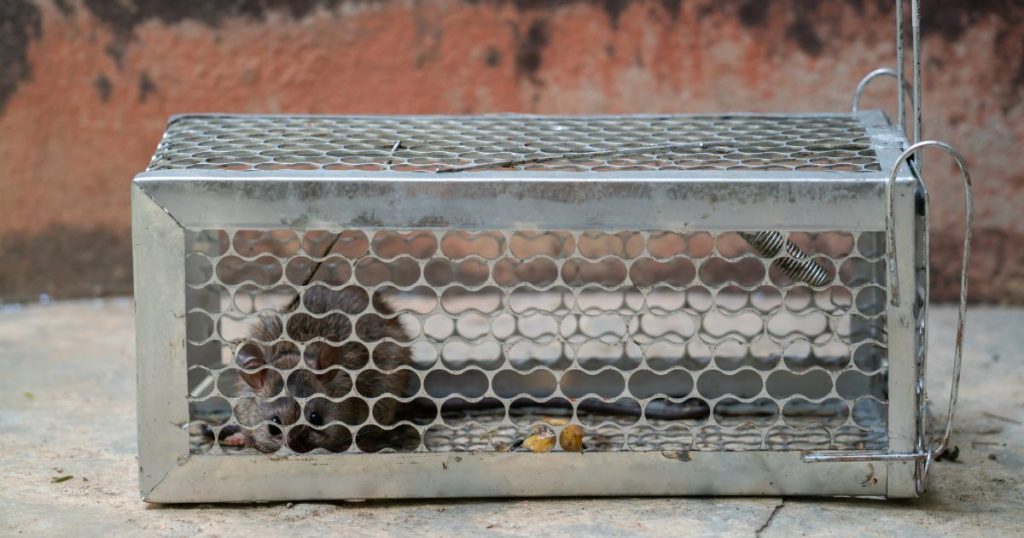A mice invasion can pose significant challenges for warehouse owners and entrepreneurs. Understanding how to effectively manage such infestations is crucial for maintaining a productive workspace and safeguarding inventory. Many people view this issue as something annoying, but entrepreneurship is about learning and adapting so it’s part of the process.
Starting a warehouse-focused business requires not only a keen interest in logistics and supply chain management but also the ability to address environmental concerns, such as pest control. By implementing strategic prevention measures and response plans, entrepreneurs can distinguish themselves in a competitive market. Efficient management of pests, like mice, can enhance the reputation and reliability of a business.
This article will explore practical approaches to tackle the challenges of a mice invasion while highlighting how these experiences can foster entrepreneurial growth. Readers will gain insights into both pest control techniques and business strategies that can lead to success in warehouse entrepreneurship.
Table of Contents
Understanding Mice Infestations
Mice infestations in warehouses can cause significant challenges. Recognizing the causes and implications is essential for effective management and prevention.
Causes of Mice Invasion in Warehouses
Mice are attracted to warehouses primarily due to available food sources. Food stored improperly or spills left unattended can draw them in. Areas with clutter can also create hiding spots, making it easier for them to thrive.
Structural vulnerabilities play a crucial role. Open doors, cracks in walls, and unsealed entry points can serve as gateways for mice. Regular inspections and maintenance help in identifying and sealing these vulnerabilities.
Additionally, environmental factors contribute. Warehouses located near fields or wooded areas often see higher rodent activity. Implementing proactive measures such as landscaping maintenance can reduce the likelihood of infestations.
Implications of Mice Infestation in Storage Facilities
The implications of a mice infestation in storage facilities are serious. They can lead to significant damage to inventory through gnawing and contamination. Food products can be ruined, resulting in financial loss.
Mice also pose health risks. They can carry diseases that contaminate surfaces and food, which can mean a potential problem that the business owner really doesn’t want.
To protect inventory, businesses should implement strong pest management strategies. Utilizing traps, proper sanitation, and regular inspections are vital. Education on identifying signs of infestations helps in early detection and prevention efforts.
For mice management solutions tailored to your warehouse and business needs, contact experienced teams like Critter Stop. Conduct a thorough due diligence where you check out their experience, reviews, and what type of protection they bring to their clients.
Launching a Warehouse Business
Establishing a warehouse business requires careful planning and an understanding of the obstacles entrepreneurs may face. The following guidance will aid in both the development process and overcoming challenges.
Planning and Development
Creating a successful warehouse business involves several strategic steps. Entrepreneurs should begin by assessing market demand and identifying potential clients.
A solid business plan is crucial. This plan should include:
- Market analysis to determine competition and target customers.
- Location selection focusing on accessibility for deliveries and transport.
- Operational plan outlining services offered, such as storage or distribution.
Investing in technology can streamline processes, such as inventory management systems. Additionally, considering zoning laws and obtaining the necessary permits is vital.
Ultimately, a well-researched approach will position the business for growth and sustainability.
Challenges in Warehouse Entrepreneurship
Warehouse entrepreneurship presents unique challenges. One major issue is competition. Many businesses operate in this sector, making differentiation essential.
Regulatory compliance adds complexity. Entrepreneurs must navigate safety regulations, employee training, and environmental concerns. This may sound complicated and part of a long process but not complying can end up in an even more expensive cost.
Furthermore, dealing with operational costs can be a challenge. Expenses related to staffing, utilities, and maintenance can add up quickly. Budgeting accurately is critical to maintaining profitability.
Lastly, managing logistics effectively is crucial. As customers expect faster delivery times, optimizing supply chains is necessary. Entrepreneurs must be adaptable and proactive in addressing these various challenges to thrive.

Pest Management Strategies
A good warehouse operation is synonymous with good and reliable pest management. Implementing preventive measures, customized pest control solutions, and best practices can significantly reduce the risk of pest infestations.
Preventive Measures Against Pests
Proactive measures are essential to keep pests from invading warehouses. Guaranteeing that storage areas are clean and organized minimizes hiding spots and food sources. Take the time to keep a strict schedule when disposing of waste and focus on keeping areas very clean.
Seal Entry Points:
- Inspect windows, doors, and vents.
- Apply a filler like caulk or install weather-resistant strips.
Implement Proper Sanitation:
- Schedule regular cleaning, focusing on food storage areas.
- Maintain a strict inventory to avoid spoilage and clutter.
Monitor Surroundings:
- Create a protective layer around the foundation using gravel or poured concrete.
- Remove debris and standing water around the warehouse.
For warehouse pest prevention and control, partnering with Critter Stop provides peace of mind knowing your facility is safeguarded by professionals who understand the unique challenges of storage environments. Their team offers tailored solutions to keep pests at bay and your operations running smoothly.
Tailored Pest Control for Warehouses
Pest control strategies should be specific to the warehouse’s nature and environment. Regular assessments help identify pest activity and suitable interventions.
Utilize Pest Control Services:
- Partner with pest control professionals who understand warehouse dynamics.
- Create a tailored plan that includes inspections and customized treatments.
Employ Integrated Pest Management (IPM):
- Use different types of control methods available (biological, cultural, mechanical, and chemical)
- Monitor pest populations and adjust strategies based on findings.
Train Staff:
- Educate employees about common pests and signs of infestations.
- Provide training on proper food handling and sanitation protocols.
For comprehensive pest control services, reach out to Critter Stop for their expertise in supporting warehouse owners in implementing effective, long-term pest management plans and creating a clean and safe environment for your business.
Best Practices for New Warehouse Owners
New warehouse owners should prioritize pest management from the outset. Establishing solid practices early can prevent larger issues down the road.
Conduct a Risk Assessment:
- Identify potential vulnerabilities unique to the warehouse layout and location.
- Assess previous pest activity in the area for targeted strategies.
Develop an Ongoing Pest Management Plan:
- Create a calendar for regular inspections and treatments.
- Include staff responsibilities and emergency protocols.
Engage with Experts:
- Consult pest management professionals during the initial setup.
- Seek ongoing support to tackle emerging pest challenges proactively.
By focusing on these strategies, warehouse owners can effectively manage pest issues while ensuring a safe and clean working environment.

Frequently Asked Questions
Addressing mice infestations in warehouses requires specific strategies and knowledge. The following questions provide insights into prevention methods, health impacts, deterrents, costs, and ongoing control measures.
What effective measures can be taken to prevent mice infestations in warehouses?
To prevent mice infestations, warehouse owners should seal any cracks and crevices. Properly store food products in airtight containers and maintain a clean environment. Last but definitely not least are the importance that should be given to regularly inspecting and maintenance because it helps in the identification and immediate action on entry points.
What are the potential health violations associated with rodent infestations in business premises?
Rodent infestations can lead to various health violations, including unsanitary conditions. Their feces and urine contaminate surfaces and supplies. This could result in fines or loss of business licenses if reported.
Which deterrents are known to effectively dissuade mice from occupying warehouse spaces?
Several deterrents can help keep mice away from warehouses. There are repellents with ultrasonic technology that focus on high-frequency sounds that are unpleasant for rodents. Natural deterrents like peppermint oil or certain types of essential oils can also be effective.
What is the typical expense range for professional rodent extermination services for large storage facilities?
The cost of professional rodent extermination for large warehouses typically ranges from $200 to $2,000. Factors influencing the price include the size of the facility and the severity of the infestation. Custom plans may also affect overall costs.
What steps should warehouse owners take to ensure continued rodent control after an extermination?
After extermination, warehouse owners should implement a regular inspection schedule. Maintaining cleanliness and ensuring all entry points are sealed is essential. Continuous monitoring for signs of rodents will help maintain a rodent-free environment.
What are the risks of handling mice extermination internally without professional help in a warehouse setting?
Handling rodent extermination internally carries several risks, including ineffective methods leading to persistent infestations. Without proper training, individuals may also expose themselves to diseases carried by rodents. Additionally, a lack of knowledge can result in property damage during extermination attempts.
Contact Critter Stop at 214-380-1667 for expert mice extermination solutions tailored to protect your warehouse and entrepreneurship goals. Their 5-star team provides professional pest control to safeguard your inventory and operations. Act now to eliminate rodent infestations and secure your business effectively.
